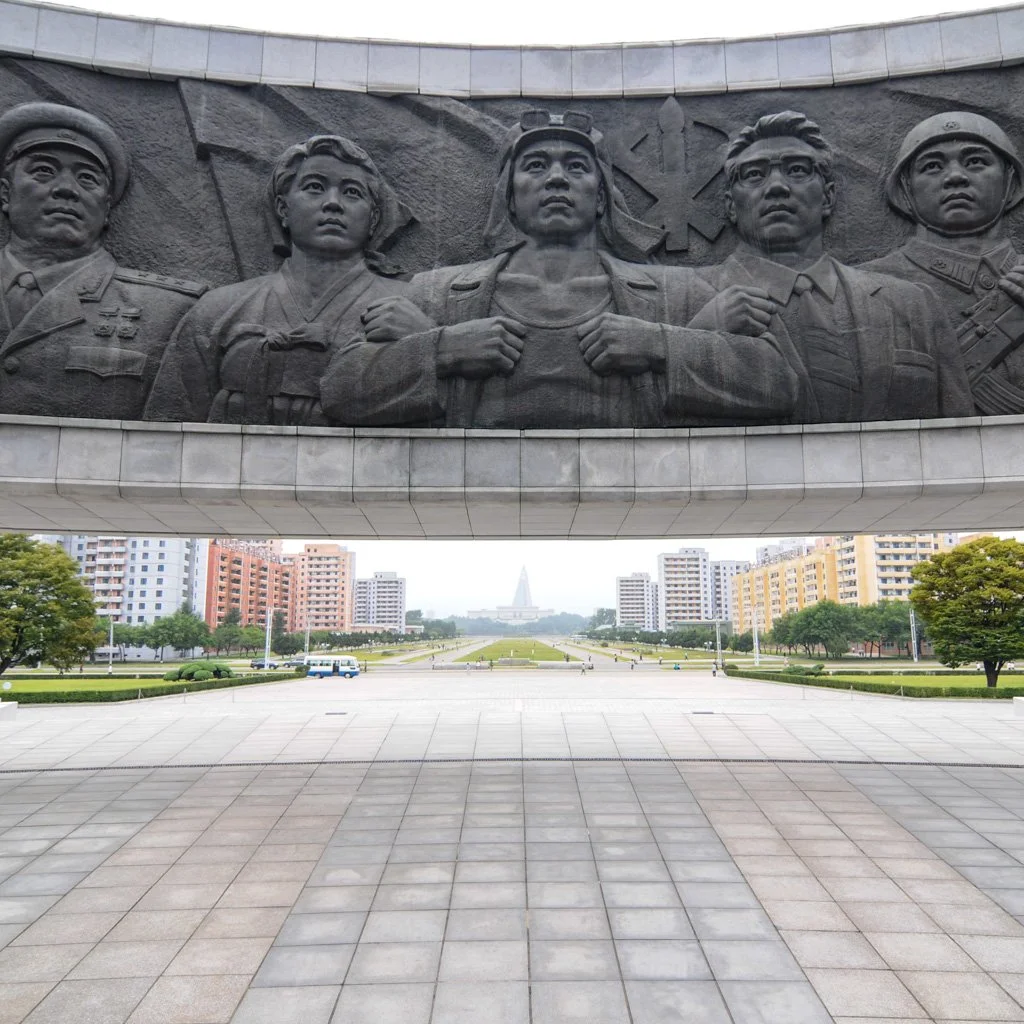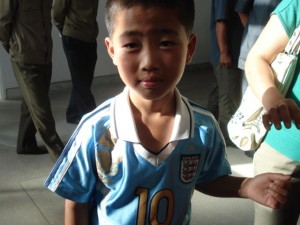While giving a talk at the Wharton School in April, I stopped by the Knowledge@Wharton publication to chat about my work. The following are excerpts from the interview.
------------------------------------
Knowledge@Wharton High School: Geoffrey, thank you for joining us today. Why did you start this organization? Why did you focus on financial education as a way to support long-term economic development in North Korea?
Geoffrey See: When I was a student at Penn in 2007, I [chose] to go to China for one of the summers to do research and to intern in China. I had some time during my internship, so I went to North Korea as a tourist. I was familiar with the usual stereotypes of North Korea as a communist country, but what really surprised me was [that] I met university students who were very interested in business and economics. They wanted to get access to books and topics, they wanted to find ways to learn about business, and they were very curious to hear about it, especially from someone who was studying business in a university setting.
KWHS: Can you give us a snapshot of economic development today in North Korea? What does it look like?
See: [Many] young people there are very interested in trying new things. They want to set up their own businesses. They want to implement the things that they’ve learned and heard from the rest of the world. The problem, though, is that it’s still a very restrictive economy and society, so [they can’t implement] a lot of the things that they want to do. We have discussions with younger people who are trying to implement some of these ideas.
KWHS: Tell us about the workshops. How do they take shape?
See: We first go [to North Korea] and talk to the various institutions to try to understand what they want to learn about. It’s a very interesting process because when you talk to these people, they have very limited access to information and they are trying hard to understand the world around them. We have conversations, say, with a banker in North Korea, and she tells us, “I’ve read this term in the Financial Times and I don’t know what it’s about, but it sounds very interesting and I’ve seen it come up quite a few times in the paper.” Some of these terms are “private equity” and “exchange trader funds” — topics that are relevant in the rest of the world.
But in North Korea, the sad thing is that we [have to] tell them, “These are not things that you can implement in [this country] in the next 20 or 30 years…” But it’s interesting to see them being curious about a process. So we normally talk to them about these different topics, get a sense for what they’re interested in and what they can realistically try to change in the next three to five years. Then we say, “This is a topic we want to work on.” We bring in a team of workshop leaders who are volunteers from the business or policy sectors. They do small group workshops to discuss these topics and try to get [participants] to think about how they can potentially implement this knowledge within their environment.
KWHS: How strong is business education in North Korea?
See: They don’t have access to most of the modern knowledge that’s being created in the business area. We have looked at some of the universities and the books they have in the libraries, and we see financial textbooks from the 1970s published in the Soviet Union, which makes us a bit dubious about the extent to which they capture the current field of knowledge in some areas. The [people here] are really conscious of the fact that the world sees them as being very isolated. When we do a workshop, participants tend to drop big words that they might have read somewhere on the topic or heard about from someone. Very often, they don’t understand the concepts behind them. [For instance,] we had some of them raise [the concept of] corporate social responsibility (CSR) in a [context] that had nothing to do with [what CSR is]. They were trying very hard to show that, “Oh, I’ve read a little bit, I’ve heard a little bit of what’s happening outside and I’m in tune with the theories.” But very often, you realize that there’s a weak conceptual understanding of some of the things that they raise.
KWHS: As you build out your organization, say, in the next five years, what do you see as your main goals? What do you see as your biggest challenges?
See: We are very happy targeting younger adults aged 20 to 40 – [they have] high potential, and are very curious and very intellectually motivated. This group of people is [excited by interesting ideas]. They want to test and try them out. We probably want to expand the number of people we involve from that age group and get them to think about the next steps. It’s not just learning about business or finance or economic policy, but also saying, “Okay, now that I’ve learned this, how can I actually set up something and implement some of these ideas that I’ve learned?” We may try to support them, maybe by setting up a business incubator. The concept behind it is that people are interested, but they don’t always know how to set up a business, raise capital, set up a proper accounting system. We would come in and help them realize their dream by providing them with these kinds of resources and some of the funding to create businesses.
KWHS: Does North Korea have an existing incubator infrastructure?
See: This is the exciting part of our work and also the most challenging part. Currently, it’s a very alien concept to them. They’ve never seen it before and they need to get permission to get it done within the system. So we have started introducing the concept to them to get them to feel a little bit more comfortable with it. I think it’s something that we have to work towards, and I’m guessing in two to three years time, we may be able to get it set up.
KWHS: Are the young people you speak with in your seminars very entrepreneurial? Have you found that they really want to start their own businesses?
See: I think for most of them, there is excitement because they read and have had the opportunity to go to other countries. For example, they visit a supermarket in China or visit a fast food chain in China and [think], “Wow, this is a very interesting concept.” It has the connotations of modernity, so they look at a fast food restaurant and see it’s not just convenience and cheap food, but it’s fast, it’s clean, it’s modern. A lot of them want to bring those concepts back because [these ideas are] very innovative and exciting. There’s so much curiosity, but people haven’t had a chance to go out and try to get it set up in a space where none of this exists.
KWHS: It sounds like they have hope.
See: I think there’s a lot of hope. There are challenges, too. There’s always going to be an opening-up process where there’s more leeway to do things, and then [other times] it’s going to be more strict and restrictive. When you’re between 20 and 30, you [get excited]. When we see them getting to 30 to 40 years old, people tend to be a bit more rational and want a more stable path in life.
















